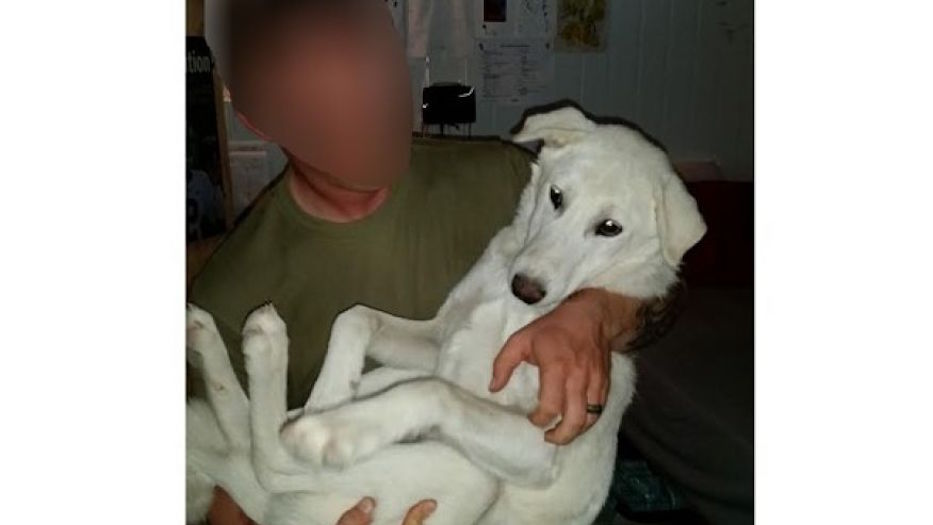Like all recovery operations in hostile territory, this one was costly and dangerous.
But the American that required a special operations soldier to enter the war zone in full body armor was furrier and weighed significantly less than the average soldier, because he was actually a 45-pound white Canaan dog named Ghost.

The special ops soldier, who declined to give his name due to security reasons, conducts similar missions all over the world to reunite pets acquired on overseas bases with their owners back home in the States.
“It’s the best feeling to reunite these pets with their soldiers,” he said. “I was wounded in Iraq, myself, and I owe my life to my dog. There is a bond there that could never be broken.”
Sunny is all rested up after her long journey from the Middle East and is ready for her new forever home in the US!
Together We Save Them! pic.twitter.com/69mY0pv3eF— Guardians of Rescue (@GORSavesThem) January 11, 2017
Pets are not considered military property for American soldiers serving abroad and are often left to die in the war zones where they met their owners and handers. With the help of a New York-based rescue group, this special ops soldier has made it his duty to fly into war-torn countries in the Middle East to retrieve the dogs and bring them back to the U.S.
“The animals are not classified as military property, therefore they’re not authorized on the packing list,” the soldier said. “You take home with you what you bring.”
The 14-year veteran has carried out 20 missions and returned dozens of pets to their owners, including a fluffy orange cat named Majnoon and a dark-colored puppy found in the desert after his mother had been shot to death.

“There’s a risk of kidnapping – there’s a risk of everything over there. You don’t know who’s your friend and who isn’t,” said the soldier. “…I had a gun held to my head while I was trying to get a dog.”
Each mission costs between $3,000 and $4,000 and is fully funded by Guardians of Rescue, which has been providing the finances necessary for the retrievals in hostile countries such as Syria, Afghanistan, Iraq and Yeman.
https://www.instagram.com/p/BMW-naUFsfS/
Ghost and his entire litter were poisoned as a part of a “vector control” program, in which local contractors at the bases near in the region trap and exterminate the animals, including packs of feral dogs.
The 1-year-old pup survived, and he was brought stateside to live in the Northeast.
“I think he realizes he’s lucky,” he said of Ghost, describing him as a quintessential puppy who loves to play. “He has an undying love for his soldier.”
https://www.instagram.com/p/BPbPxLxFYOg/
Before leaving for the U.S., pets must receive medical clearance. The goal for each mission is to bring four pets back.
Help the helpless. Rehab the broken. Foster the homeless. Keep families together. Show your support today: https://t.co/CJd83ItGTt
— Guardians of Rescue (@GORSavesThem) January 26, 2016
“When you know you can help an animal stay alive and also prevent a service member from experiencing guilt for having left a pet behind — it’s very rewarding,” said Robert Misseri, who runs Guardians of Rescue, the subject of a weekly show on “Animal Planet.”
—
Read More:
These Women ‘Chose’ Not to Listen to Planned Parenthood… and LOOK What Happened
‘We Must Respect God’s Will’ – Surviving Brazilians Emotional First Soccer Game Since Plane Crash


